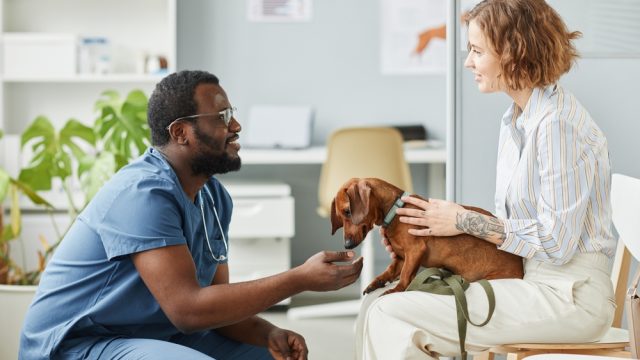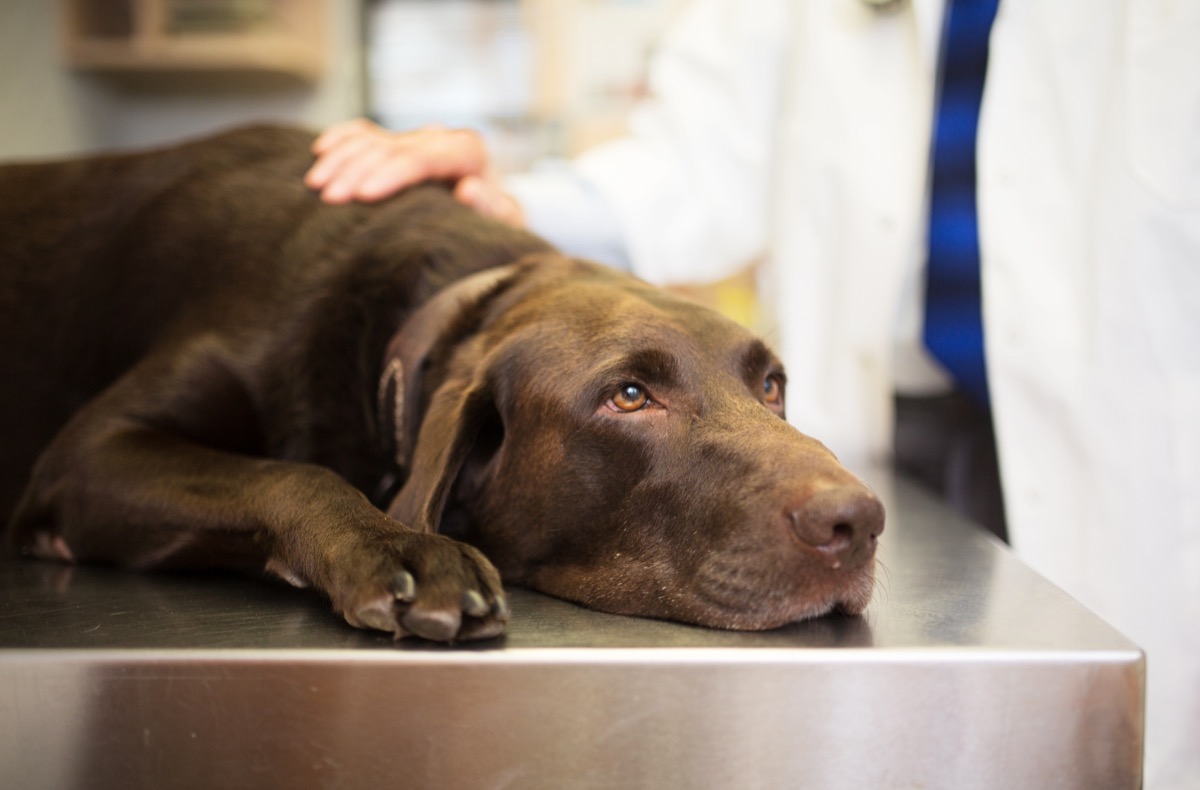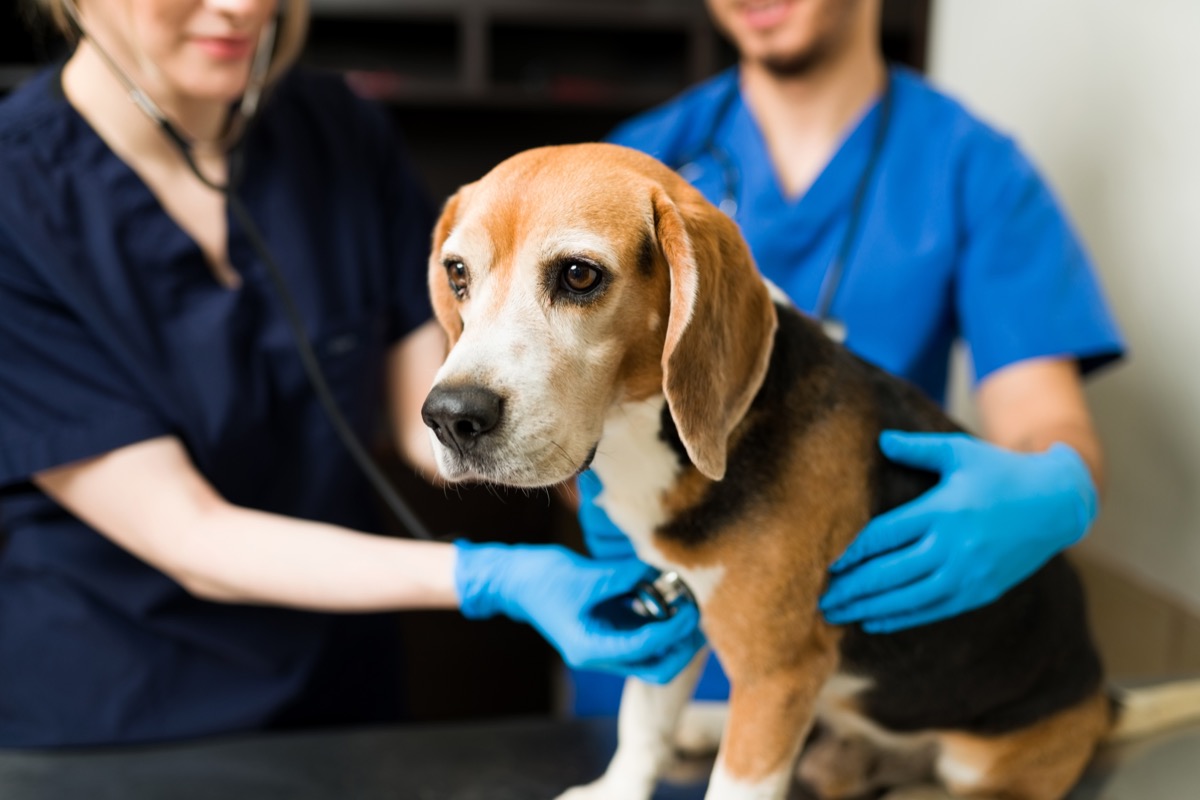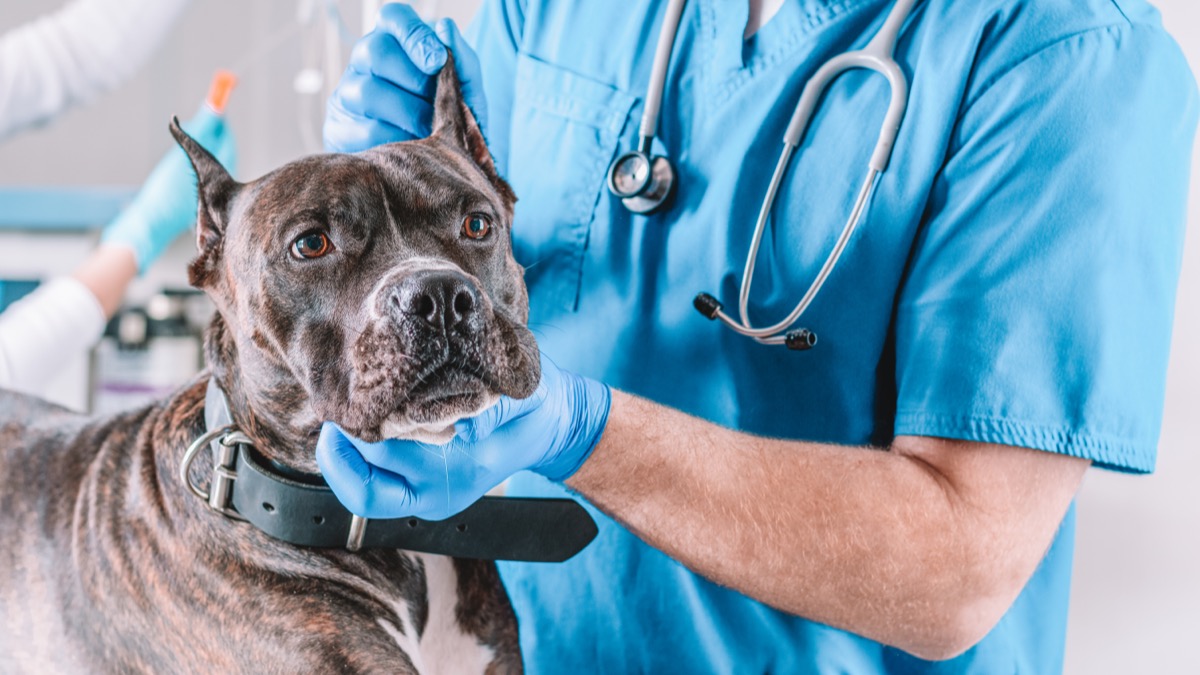6 Secrets Veterinarians Aren’t Telling You About Your Dog

It’s not uncommon to feel like you know your dog better than anyone else ever possibly could. Unfortunately, keeping your canine companion in good health is not the sort of thing you can do alone, no matter how much of a beginner or expert you are with pets. In cases where your dog becomes injured or sick, a professional veterinarian takes on the difficult task of assessing and diagnosing what’s wrong with an animal that doesn’t have the benefit of saying what hurts. But just as what may happen in your relationship with your doctor, it can sometimes feel like the person taking care of your furry friend knows more than they’re letting on. Read on to see some of the secrets veterinarians aren’t telling you about your dog.
READ THIS NEXT: 5 Low-Maintenance Dogs You Barely Need to Walk.
1
They’re not passing judgement on your ownership abilities.

Just like conversations with your own healthcare provider, it can be difficult for vets to bring up sensitive subjects with owners they fear might come across as judgemental or demeaning. In fact, experts say it can be one of the most challenging parts of keeping dogs healthy.
“Owners can find it hard to broach the topic of obesity,” Linda Simon, DVM, a veterinary surgeon and a consultant for FiveBarks, tells Best Life. “Telling an owner their dog is overweight is an uncomfortable subject, and many owners take offense. Of course, vets aren’t discussing the issue to be cruel or to lay blame; they simply want to help the dog. As obesity is linked to a shorter lifespan and a worse quality of life, it’s important to have a frank talk.”
In some cases, it can help to bring up the topic yourself if you’re concerned. “If your dog is overweight, talk to your vet about getting him or her on a diet plan that works for both of you,” Alex Schechter, DVM, a vet with Burrwood Veterinary in Michigan, tells Best Life.
2
You’re not asking the right questions about their diet.

With so many options for higher-end or customized pet food on the market these days, feeding them kibble or canned meals can almost feel like you’re letting your dog down. However, experts say that deciding to tweak their diet is a conversation you need to have with them first.
“A big thing that most vets won’t tell dog owners is that most nutritional issues come from owners steering away from established dog food brands and treats,” Jacquelyn Kennedy, a canine behavioral specialist and founder of animal information website PetDT, tells Best Life. “When dog owners do their own research and design their own diet for their pets, there’s a big risk of misinformation, and the dog suffers the consequences of eating the wrong food or not getting the right nutrients. This is something that happens a lot with dog owners that want to give their dog a raw diet, as it is quite hard to do well unless you have input from your vet!”
READ THIS NEXT: The 5 Best Pets If You Travel a Lot, Experts Say.
3
You may want to hold off on that dog park visit.

Depending on where you live, letting your dog socialize and get the exercise they need might not be as easy as letting them run through the backyard. In this way, dog parks have become an easy way for owners to let their pets run relatively free, play with other pups, and get out of the house. But even though they may seem like an easy way to work in playtime, vets caution that they also come with their fair share of potential risks.
“We’re not all fans of dog parks,” Melissa Brock, a board-certified veterinarian and author at Pango Pets, tells Best Life. “There are many unvaccinated pets there, and not everyone is a responsible owner, and their pets can get loose, causing problems. I’ve also seen a lot of dogs injured at these parks.”
4
Treat the source of fleas, not just the ones on your pet.

One of the more dreaded elements of dog ownership can be the constant fear of developing fleas. Fortunately, products like specific collars and shampoos exist to help make them less of an issue. But if you find yourself constantly dealing with infestations, you might be addressing the wrong problem.
“Fleas are annoying, but they’re pretty easy to get rid of even if they’ve gotten inside your home,” Schechter tells Best Life. “After fleas have been removed from their home environment (like your house), there’s no way they can survive outside again—so if you want fewer flea bites down the road, treat the environmental problem now.”
For more pet advice delivered straight to your inbox, sign up for our daily newsletter.
5
They’re not prejudiced against your dog’s breed.

One of the best parts of dog ownership is getting to know each animal’s unique personality. But whether they’re a gentle giant or a timid tiny pup, not all behavior can be boiled down to what breed of dog they are. Fortunately, vets know this—even though they may not tell you.
“We don’t believe the bad reputation some breeds get,” Brock says. “Don’t assume that just because some people believe your dog breed is bad, we believe the same.”
6
Don’t beat around the bush when addressing a problem.

We’ve all felt the urge to hold back from telling our doctor the whole story during a checkup. After all, the fear of being scolded or told to make a major change can be a powerful motivator, despite how wrong it may be. However, vets say they often experience the same problems with pet owners—and in some cases, this can make their jobs much harder.
“Vets know when you’re stretching the truth,” Danny Jackson, a veterinary expert and chief editor of Pet Lover Guy, tells Best Life. “If you bring in your dog and you know you’ve fed him something you shouldn’t have, which is why he’s sick, your vet will know. They can conduct the tests and see the results as clearly as a nurse can with a person.”
Despite what you may be worried about, you only stand to gain by telling the truth when seeking medical care for your canine friend. “If you want your dog to get quicker and more effective treatment, then the best thing to do is be upfront and honest,” Jackson suggests. “All vets want to do is make your pet better, and that’s what they’ll do.”